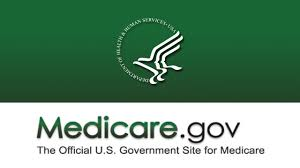The Medicare national health insurance program was passed by Congress in 1965. It provides health insurance for older Americans and some younger people with disabilities. These groups were usually not eligible for employment-linked group coverage. Medicare covers fifty-two million Americans 65 years old and older and 8 million younger people with disabilities and certain chronic diseases including end stage kidney disease and ALS neurologic disease. Working people pay into Medicare through deductions from their paychecks. Medicare Part B insurance (for outpatient care including doctors) bills beneficiaries but does not cover all the bills. There is supplemental Part B insurance available from private insurers for additional coverage. Medicare Part D insurance (helps cover much of the cost of most prescription medicine) is also available through private insurers.
The Equity and Fiscal Responsibility Act, which was passed by Congress in 1985, allowed Medicare beneficiaries to receive healthcare services through private-health plans. These health plans offer the same service coverage as Parts A & B, often with the benefits of Part D, and with an annual out-of-pocket expense limit which traditional Medicare Part A & B lack. The plans receive a predetermined monthly risk-adjusted payment from the federal Medicare program to cover each beneficiary’s care. The beneficiary receives more comprehensive benefits than those provided through traditional Medicare. In theory, Medicare can save money by taking advantage of efficiencies in a managed care health system that the private Medicare plans supply.
Private insurance Medicare plans, also called Medicare Advantage, Managed Medicare and Medicare Part C plans, cover more than 28 million older and disabled Americans. They are an increasingly popular option with total enrollment more than doubling over the past decade. By 2030, the Congressional Budget Office projects more than half of Medicare beneficiaries will be in a private Medicare plan.
Medicare Advantage plans tout perks such as limited out-of-pocket costs, vision and dental benefits not offered by traditional Medicare, and even gym memberships. There have been bills before Congress recently that recommend expanding traditional Medicare by adding these benefits.
Be aware that private insurance Medicare plans restrict networks of doctors that its beneficiaries can use, mandate authorization for some services and require referrals for specialists.
Rosemary Bartholomew, a Medicare Advantage expert with the U.S. Department of Health and Human Services, told U.S.A. Today that private Medicare plans are generally paid a fixed amount per patient, therefore, their profits will be higher if patient care is restricted. Bartholomew said, “There can be an incentive to kind of stint on care a little bit in order to increase profits.” In contrast, traditional Medicare pays doctors and hospitals for each test or procedure.
Listen to the full report below:
Contact: Dick Needleman, Health reporter, 103.3 AshevilleFM, [email protected]
More Posts for Show: Asheville FM News Hour
